
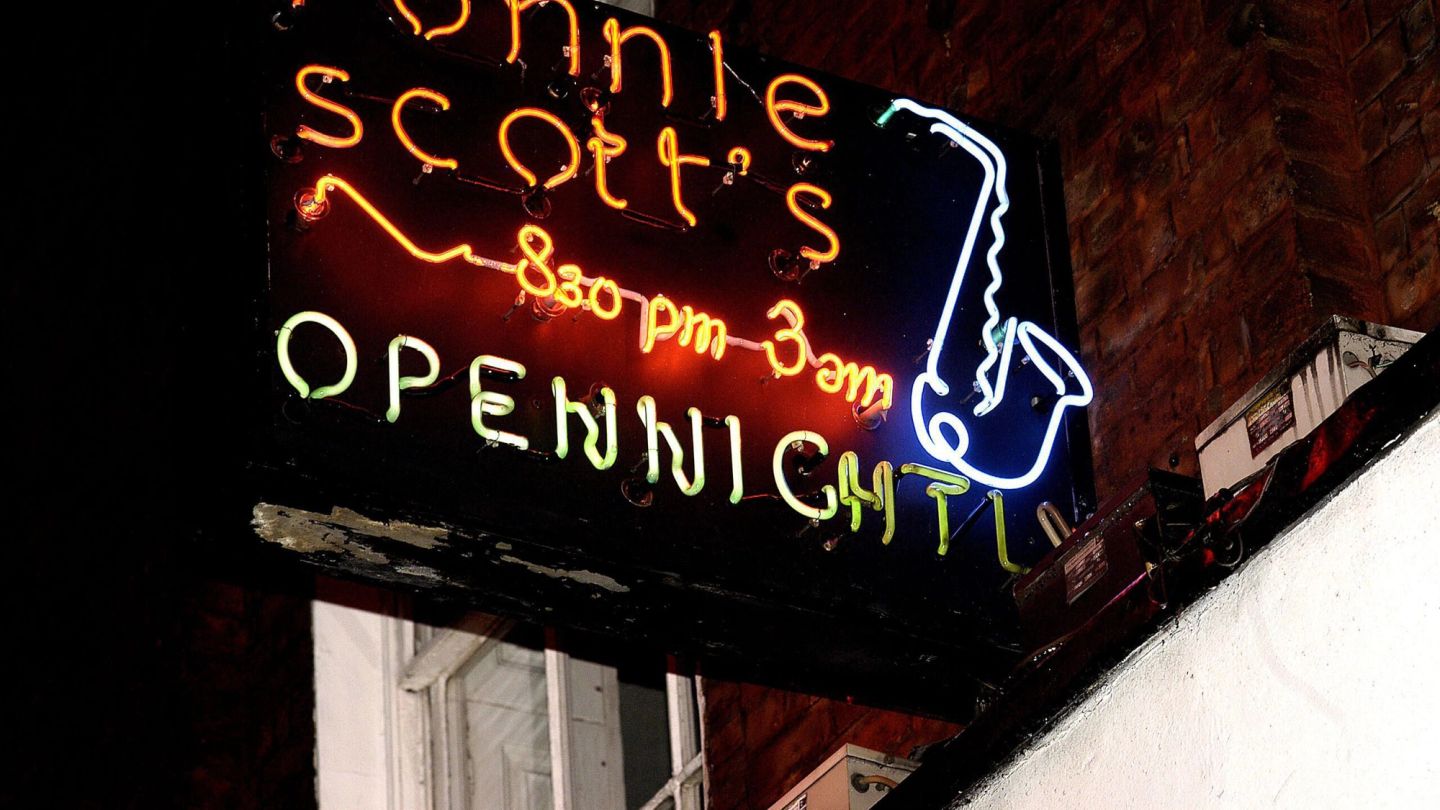
The ballad of Ronnie Scott’s
It's been a rough, tough year for live music. But it'll take more than a global pandemic to stop the music at the iconic London jazz club...
Words: Izzie Price
“One late evening, the musicians on stage were playing a few jazz standards — when saxophonist Alex Garnett was tapped on the shoulder by a gentleman, asking if his friend could join the session. Alex wouldn’t normally allow strangers to ‘jam’; but when he noticed it was Stevie Wonder, he made an exception”.
James Pearson, Artistic Director at Ronnie Scott’s, stops his story to laugh briefly. “The only condition,” he continues, “was that Stevie didn’t want the audience to know it was him; so he was introduced as Stephan Underbar. Although I think everyone recognised him!”
It’s an incredible story; the stuff of musical legend and celebrity lore. At Ronnie Scott’s, however, such stories are as common as syncopated rhythms and saxophone solos. With an age-old reputation as one of the most famous jazz clubs in London — or the world, for that matter — the basement club has been bathed in soft shadow for decades; hosting a roster of musical guests most venues could only dream of.
“The walls seem to inspire great performances from great performers,” adds Pearson. “Jazz legends like Miles Davies, Ella Fitzgerald and Oscar Peterson; singers like Curtis Mayfield, Eric Clapton, Van Morrison, Sting… you name it.”
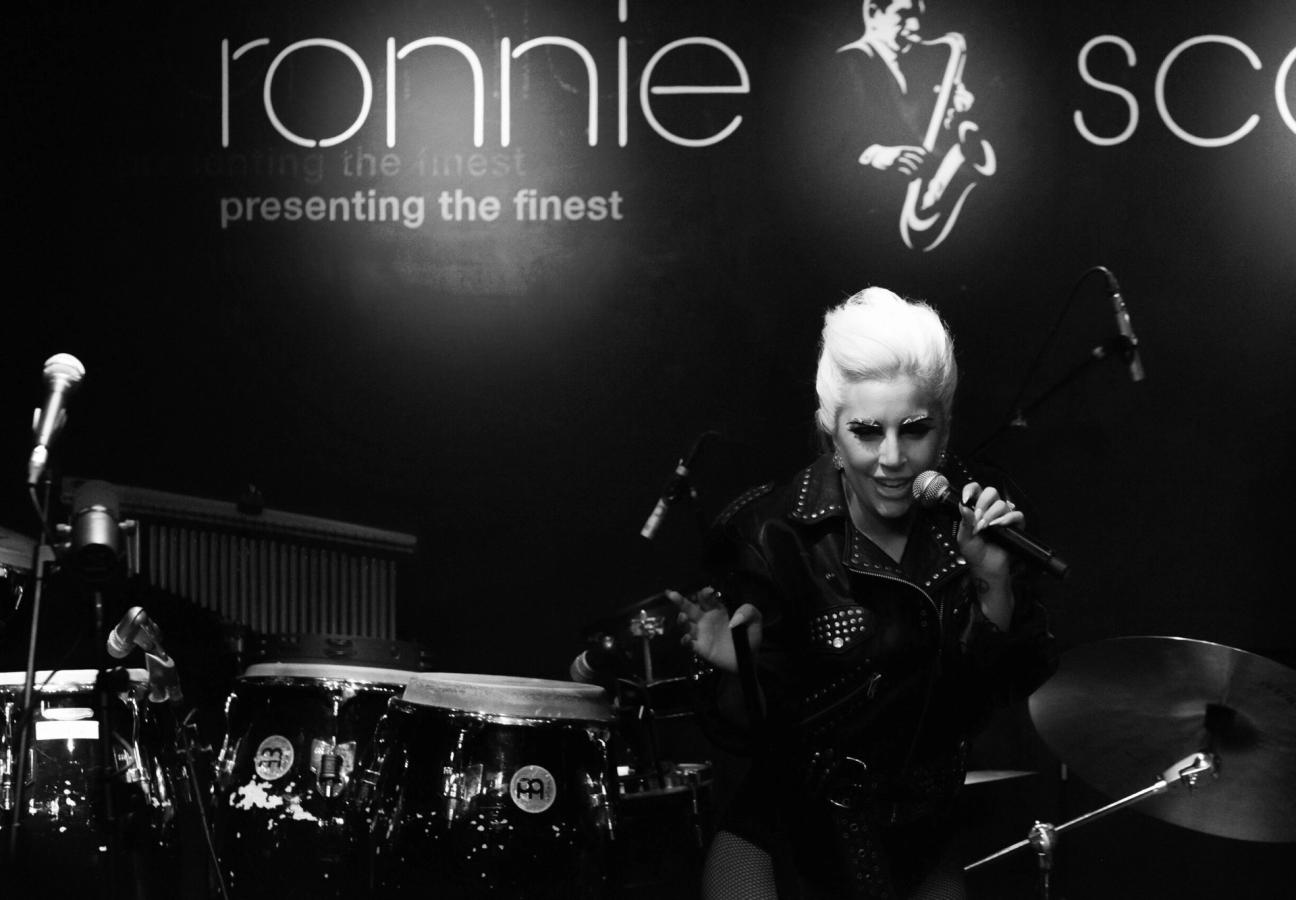
Lady Gaga
Pearson stops listing — but not for lack of names. The inference is, presumably; ‘if you can name a legendary jazz artist, they’ve probably played Ronnie Scott’s’. And that would be a fairly safe assumption, because the club at 47 Frith Street is as unique as venues come.
It first opened in 1959; with the stage lit and tunes struck up by renowned saxophonist Ronnie Scott. Today, the venue remains a bastion of ‘old Soho’ — and harks back to a time when jazz ruled the music scene; when HRH Princess Margaret, Judy Garland, Peter Sellars and Vidal Sassoon would be among those sitting in the plush, smoky club. “And Ronnie was a pioneer of modern jazz saxophone,” Pearson explains. “He was largely was responsible for bringing the new sound to the UK.”
"Ronnie was a pioneer..."
“It’s been a lynchpin of the jazz community for over 60 years,” adds now-General Manager Fred Nash; and he’d be right. When a Londoner thinks ‘jazz’, the thought is inextricably linked with Ronnie Scott’s — whether they’ve been fortunate enough to step through those hallowed doors or not.
The club is now in its 61st year; and it’s not hard to see why it alone has continued to thrive in an era of fiercely competing clubs — not to mention changing music tastes. “Stepping inside the club is like being transported to a bygone era,” Nash nods. “Everyone has a story of their first visit to the club. There’s something about the moment the lights go low, the drinks start flowing and you get lost in the music.”
But it’s not just about the enchanting, charming tunes and signature cocktails (we’d recommend the Drambuie-drenched ‘Boogie-Woogie’; smoother than a Miles Davis trumpet lick). There’s also something symbiotic about Ronnie Scott’s. Between the club staff and performers, the barmen and the audience, the house bands and the jazz fans, this is a blues-y, improvisational eco-system — where every person plays their own part (even if they’re not playing anything at all).
“The fact that Ronnie Scott himself was primarily a musician is always prevalent,” says Pearson, “as the club has always welcomed musicians in — not only to perform, but also to listen and be part of the Ronnie Scott’s experience. Audiences are prepared to listen to something new and different: trusting that, if it’s on at Ronnie’s, it will be top class.”
Luke Smith (Credit: Monika S. Jakubowska)
Jackson Mathod (Credit: Monika S. Jakubowska)
It all comes down to trust — just like the best jazz. If an artist is on the Ronnie Scott’s billing, they’ve earned their stamp of musical approval before they’ve even played a note. Because the reputation of this club cannot be understated; it really is a platform with the power to launch a career.
It’s a platform that Freddie Gavita, who plays trumpet in the Ronnie Scott’s Club Quartet, experienced first-hand when he launched his own album at the venue. “It felt like such a privilege to put something on under my own name, after playing hundreds of shows there with different bands,” he says. “It was a milestone for me.”
And Gavita has seen it all. The club’s celebrity credentials could fill a book — with everyone from Count Basie and Wynton Marsalis to Amy Winehouse and Jimi Hendrix taking to the stage during the last six decades.
But is the club so popular because the celebrities keep going there, or is it something about the venue itself? In all likelihood, it’s probably a combination of both — although there is something undeniably enchanting about sitting in the space, and imagining all the world-class performers who have lilted their way through a Ronnie Scott’s set. If these walls had ears, they’d be some of the luckiest in London.
"That’s the thing about Ronnie’s — you never know who may be in there..."
“There’s nothing quite like the thrill of seeing people you listened to the records of as a child playing in front of you at your workplace,” recalls Nash. “There was a night in 2018 where we had Ronnie Wood performing the music of Chuck Berry, and he was joined on stage with Jeff Beck and Johnny Depp. That was pretty special.”
Pearson recalls another occasion, when Jeff Beck was playing for a week. “He suddenly announced Eric Clapton was joining him,” remembers Pearson. “The couple on the same table as Eric didn’t realise it was him — their faces when Eric got up were a sight to behold. That’s the thing about Ronnie’s — you never know who may be in there. That same evening, three members of Led Zeppelin and Tony lommi all got on stage and joined Jeff in a number; and just to top it all off, Jon Bon Jovi walked on right at the very end.”
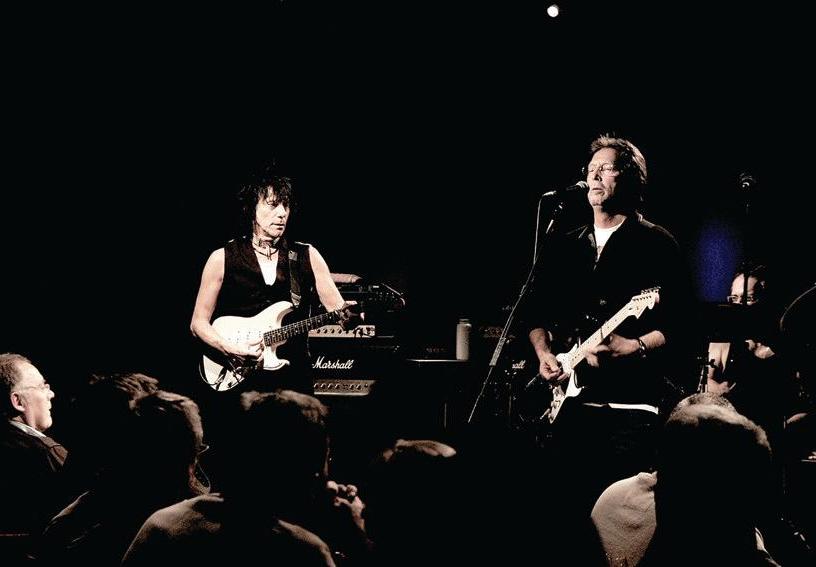
Jeff Beck and Eric Clapton
Pearson used to perform at the club, too, as pianist in a band during the 1990s. “[Once,] I was running through a piano routine with Jools Holland, Jamie Callum and Bruce Forsyth (all on one piano) and was suddenly ushered downstairs as Bryan Ferry and Gwyneth Paltrow needed a band to play alongside their tracks — a classic evening. [One Valentine’s Day, I was] on stage and noticed Sting in the audience; he later got up and sang ‘My Funny Valentine’ to Trudy Styler.”
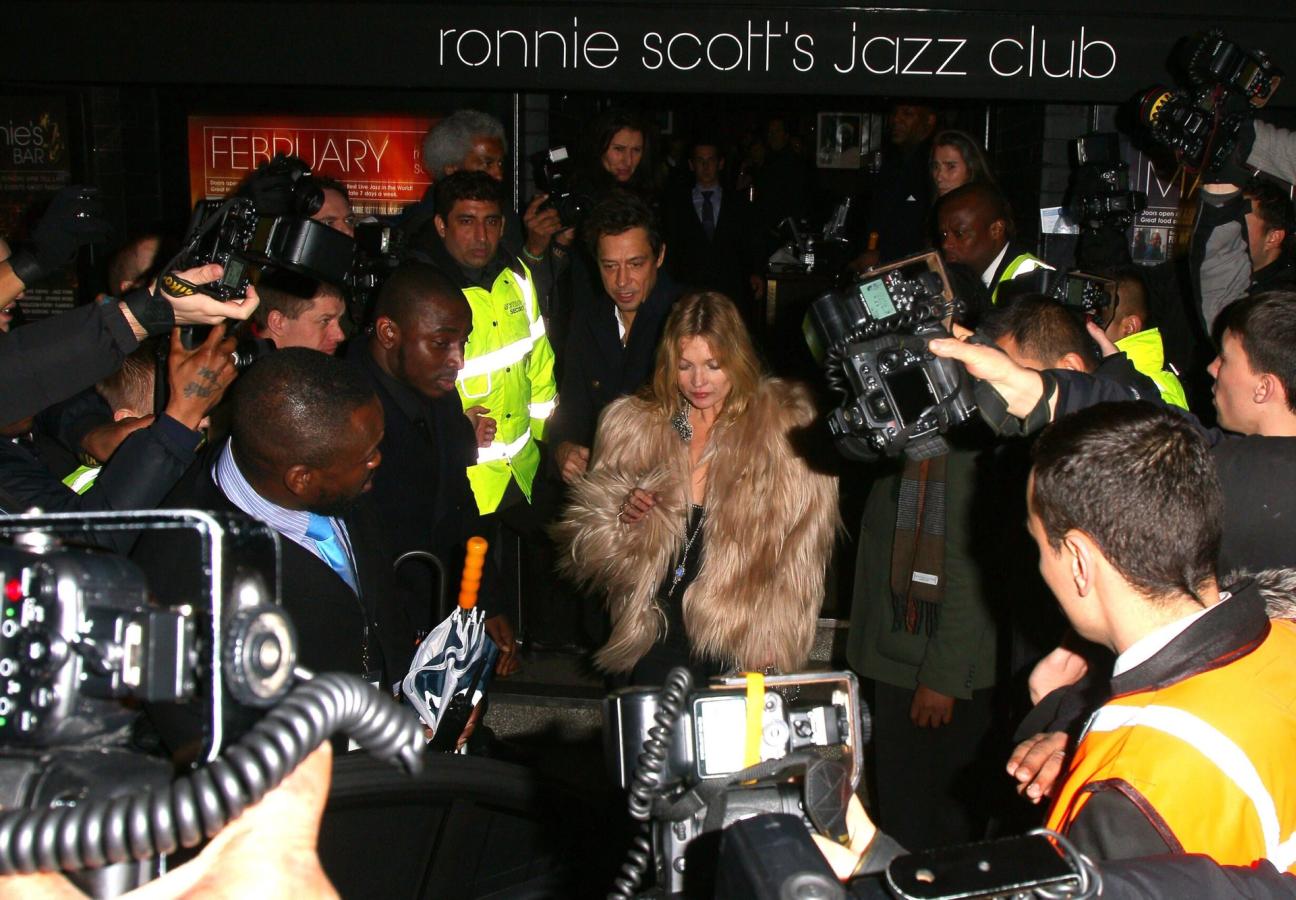
Kate Moss at Prince
After almost a year-and-a-half of being denied live music, hearing the Ronnie Scott’s team describe these performances has a musicality and nostalgia all of its own.
“Ronnie Scott himself used to host the evening, when he wasn’t actually playing,” Pearson recalls. “He was always pleased to be in the company of musicians and, by that time, his jokes were part of the evening routine. He was so proud of the club and the fact it was still running; and then, it was only 31 years old!
“The late shows were always a pleasure, as you never knew who would get up and join. I was lucky enough to be house pianist, so I was there all the time. I’ll always remember Blue Lou Marini (from The Blues Brothers) playing wonderful saxophone til the wee small hours, and telling the audience these amazing stories about filming The Blues Brothers. It was a treat for us and them. Rehearsing for Liza Minelli is another great memory…”
Pearson could go on. Gavita, meanwhile, describes the feeling of performing at the club as “almost sacred” — a sentiment all the more powerful for its brevity — and describes being driven on, in his live performance, by “an expectation from the audience that they’re going to hear something that’s going to blow their mind.”
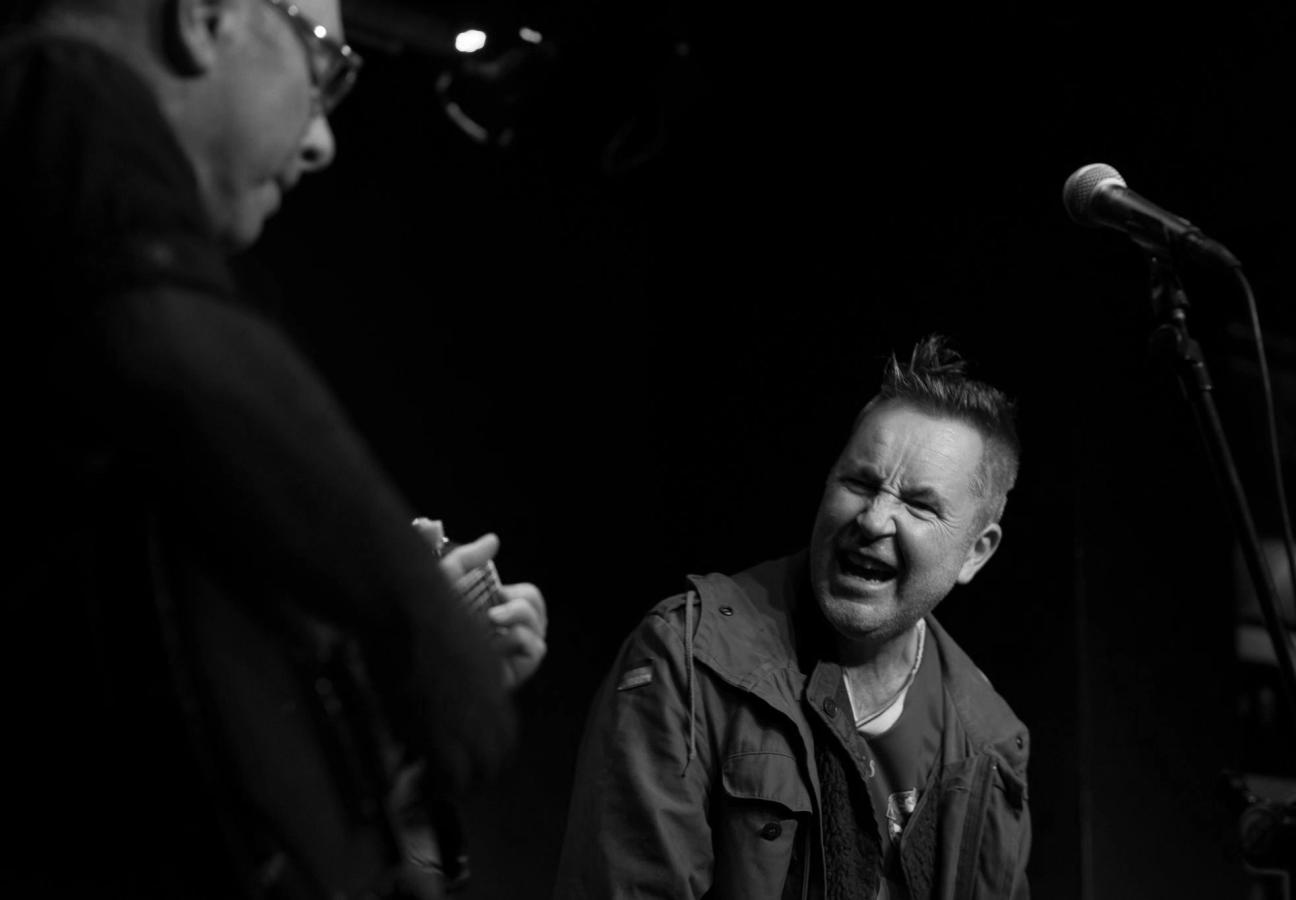
Nigel Kennedy
Of course, lockdown muffled the allure of Ronnie Scott’s as it did everywhere else. Nash notes the chilling sight of a “boarded-up Soho”, and adds that it was the goodwill of the club’s customers and loyal members that kept the club going. “It’s amazing how many people kept their tickets for future dates; that really helped us survive,” he says, frankly.
The club live streamed three shows a week — the ‘Lockdown Sessions’ — during the most recent period of self-isolation. “This meant musicians got to work and perform, and sound and lighting engineers — many of whom didn’t get any government support — were able to keep working,” says Nash.
"It was strange playing to an empty room..."
“We got an amazing reception, with several thousand people watching them,” says Pearson of the Lockdown Sessions. “I performed a few of them, and it was very strange playing to an empty room after having walked through the empty streets of Soho — yet playing to a live audience of 1200 [five times the capacity of the club itself].”
Pearson also notes what it was like to perform without that symbiotic Ronnie Scott’s crowd: “It required a different energy. You had to imagine the audience was there, as [in order] to perform music properly, it’s definitely a two-way street. It’s all about reaction: from the musicians on stage, and from the audience — because you may go in a certain direction that you normally wouldn’t, as a performer, when there’s extra energy and encouragement from an audience. That’s why it’s so exciting now playing to ‘real’ people, and probably why we all do it!”
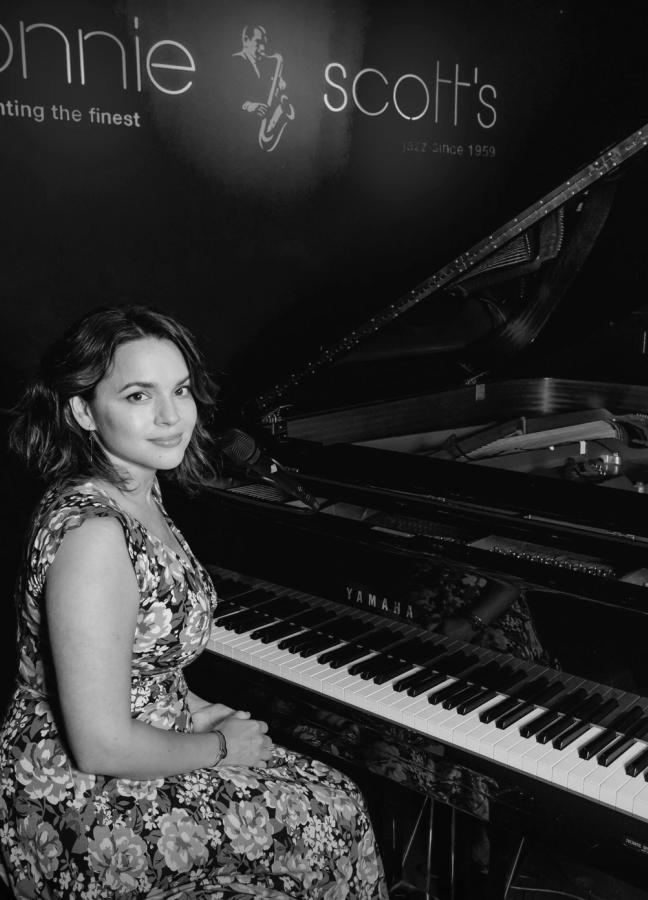
Norah Jones
Thank goodness, then, that the club recently re-opened its hallowed doors. Nash admits that the return of live music was “emotional” and, while Pearson acknowledges it’ll take a while to get back into a full late-night swing, that “audiences are coming, and there is such a great sense of ‘being back’.
“Things can only get better and better,” he adds. “People need music, culture and the feeling of togetherness that comes from sharing a space with others during a performance.”
That they do; and it’s a safe bet that, if a pandemic couldn’t take down Ronnie Scott’s, nothing ever will. The off-beat beating heart of Soho, this is less a club and more an institution — educating and entertaining in equal, musical measure. Whatever happens, jazz, charisma and the joy of living will burst out through the cracks: and Ronnie’s will go on.
“I’ve seen it all,” Gavita smiles. “Punch-ups, nudity, random people deciding to get up and start playing with the band mid-gig, famous jazz musicians being thrown out for being too drunk, celebs using the band toilet —and blocking it. You name it, Ronnie’s has seen it!”
Prefer to carry the music with you? These are the headphones you should be wearing in 2021…
Become a Gentleman’s Journal member. Find out more here.


